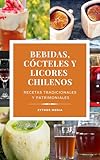Thanks to its high nutritional value and numerous health benefits, salmon is becoming an increasingly popular choice for Christmas and New Year’s menus.
Holiday lunches and dinners are an essential part of the season, and as every year, the menu options must meet multiple criteria: satisfying different tastes, being flavorful and filling, but not overly caloric.
The Chilean Gastronomy Association (Achiga) highlights:
We encourage the consumption of this food not only because it’s Chilean but also due to its vast nutritional properties.
Among various options, salmon has become a favorite thanks to its flavor and a higher nutrient content compared to red meats.
In fact, many specialists recognize it as a “superfood,” placing it in the Top 5 foods recommended by the World Health Organization (WHO).
As stated by Dr. Jorge Diaz, surgeon and president of the Chilean Society of Medicine and Cosmetic Surgery (Sochimce):
Salmon stands out for its high protein content, micronutrients, minerals, iodine, selenium, iron, and more, all of which can be better utilized when consumed at least once or twice a week.
Beyond these benefits, salmon is highly versatile and can be prepared in many ways: grilled, smoked, baked, as ceviche, tartare, sushi, or even in empanadas. Its delicate flavor, texture, and vibrant color elevate any festive dish.
Global Recognition of Chilean Salmon
For the Chilean Gastronomy Association (Achiga), salmon is an exceptional product, and Chile benefits from being the second-largest producer and exporter worldwide, supplying over 100 markets led by the United States, Brazil, and Japan.
Máximo Picallo, President of Achiga, emphasizes:
Salmon has allowed us to position Chile internationally while providing a highly nutritious protein with excellent price-quality value. It enables us to create premium-level holiday menus. We encourage promoting its consumption not only for its Chilean origin but also for its extensive nutritional benefits.
High in Protein
Salmon supports muscle mass formation and maintenance. It contains all essential amino acids required to repair and build tissues, including muscles, skin, and organs.
Rich in Omega-3 Fatty Acids
Omega-3 fatty acids are healthy fats essential for strengthening neurons and other vital functions.
The fat in salmon is an excellent source of vitamins and essential fatty acids, such as omega-3s, which protect arterial and brain health while reducing cognitive decline.
A Natural Source of Selenium
Selenium is crucial for hormonal regulation and acts as a potent antioxidant that protects cells from damage caused by free radicals, which accelerate aging.
It also stimulates the production of defense cells against infections and diseases.
Packed with Antioxidants
Salmon is rich in vitamins and minerals, especially vitamin D, a critical nutrient for bone health and immune function.
Vitamin D is especially vital in countries with limited sunlight exposure, as its deficiency can lead to issues like osteoporosis and weakened immunity.
Iron Content
Iron is essential for forming hemoglobin, which transports oxygen from the lungs to all body cells.
It also strengthens the immune system, helps combat infections, and participates in the synthesis of certain hormones and enzyme metabolism. Iron deficiency can lead to anemia, causing fatigue, weakness, and reduced concentration.
The Role of Salmon in Sustainable Food Systems
The United Nations Food and Agriculture Organization (FAO) highlights the role of aquaculture in food security. Salmon plays a significant role in the blue transformation, a crucial step toward sustainable food solutions for the planet’s future.









